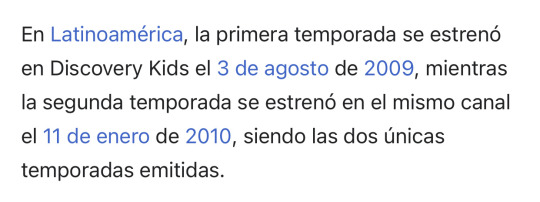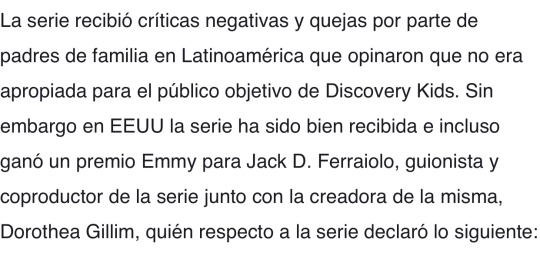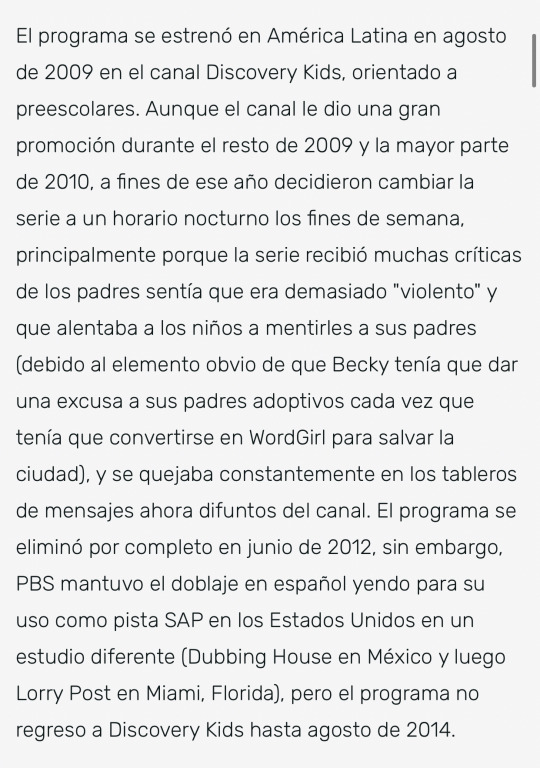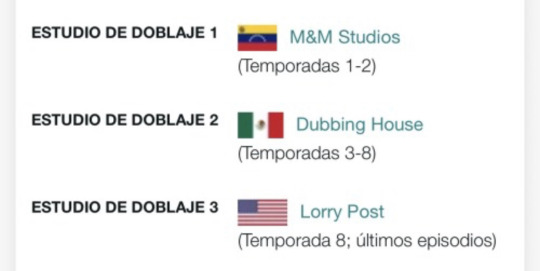#I have been informed that the original VA is going to be the LA actor and I am THRILLED
Text
We're all thinking it, I'm gonna say it:
The live action teaser would have been instantly 200% better if the final shot had been "MY CABBAGES!"
#Not even joking#The heart of AtLA is the balance of humor with seriousness#If they'd given us the Serious Face trailer and ended it with that little bit of joyful levity?#We would ALL be so much more reassured#avatar the last airbender#atla#I have been informed that the original VA is going to be the LA actor and I am THRILLED#honestly that casting gives me more faith in their dedication to the original show spirit than anything else I've heard
2K notes
·
View notes
Text
The (Unneccessary) Lore of the WG Spanish Dubs
Aka me being like this meme for an entire post

OKAY so a couple of weeks ago I had just learned that there existed a Spanish version of Wordgirl called “La Chica Supersabia” which is honestly super cool cause who doesn’t wanna hear their show in a different language?
But alas, this ended up taking me into a much deeper rabbit hole than I was expecting and it’s honestly pretty interesting so I thought I’d share it with y’all!
DISCLAIMER: I am not an expert by any means nor do I intend to come off as one, this is simply an elaborate essay of what I’ve found through my informal research. I will also be translating anything in Spanish to the best of my extent, so I apologize if I mess up a bit with the wording since it’s not my native language.
So then *places a baseball cap with glued lightbulb on my head* let’s get started shall we?
Okay so first things first, there are a couple of select episodes of La Chica Supersabia (I’ll use LCS from here on) available on the internet. The most reliable source that I’ve found is on an old Facebook account here where a fan would upload LCS episodes based on when they aired. However, the only episodes available are a select few from season one.
Now this got my mind thinking “Hey, what if there’s more episodes?” So naturally, I started scoundering on Google (like the rat I am) to see if there was indeed more. And according to this one site there are only two seasons of LCS that were dubbed.

Translation: In Latin America, the first season premiered on Discovery Kids August 3, 2009, while the second season premiered on the same channel January 11, 2010, being the only two seasons issued. (Source)
However, later on I discovered that there was some mislead in that info because someone else found a Spanish episode that was from season 3, which doesn’t make sense because why would there be another season available when it clearly says that they technically shouldn’t exist? (Btw I tried finding it myself cause I did see that episode before but for some reason now I can’t find it dhdvvdbdvd 😭)
At first I thought maybe this is just some info added from a fan. After all, that statement was posted on a Spanish Wikipedia page so it is possible. So I began looking for other articles that talked about the Spanish dubs, but they all said the same thing. Well, until I came up with this site that said two very intriguing things:

Translation: The series actually had 3 seasons and is dubbed in Caracas, Venezuela. On May 2012 the series stopped running on daytime hours and was removed from the programming one year later, on June 17, 2012. It is unknowns if it will be aired by another channel or come back to the Discovery Kids programming, besides only the two first seasons were dubbed in Spanish. (Source)
I was a little bit confused here with the wording because it still didn’t confirm my original questions; if anything it left me with more. But then I read the next section below which got me completely off track.

Translation: The series received negative critics and complains on behalf of parents of families in Latin America that claimed that it wasn’t appropriate for the objective public of Discovery Kids. Without doubt in the U.S. the series had been well received and even won an Emmy award for Jack D. Ferraiola, writer and coproductor of the series together with the creator of the same show, Dorothea Gillim, who declared the following in respective to the series: (Source)
Now this one took me by a whirlwind: WTH why was this version hated by people in Latin America while it’s adored by everyone in the U.S.?? And I watched some episodes of LCS and while the dubbing is pretty funny (lol) there wasn’t anything inappropriate about it. For the most part they stuck on script with the original episode they had to dub.
So I dove even deeper...
And o h m y g o d there is an answer to this.

Translation: The program premiered in Latin America on August 2009 on the Discover Kids channel, aiming at pre schoolers. Although the channel gave a lot of promotion for the show during the final months of 2009 and the majority of 2010, at the end of the year they decided to change the programming to nighttime hours because the show received a lot of critics from parents saying that the show was too “violent” and that it encouraged kids to lie to their parents (due to the obvious fact that Becky had to give an excuse everytime she had to leave to turn into WordGirl and save the day), and they complained constantly on the message boards now deleted of the channel. The program was eliminated completely on June 2012, without doubt, PBS maintained the Spanish dubs so that they would use for SAP (Second Audio Program) in the U.S. in a different studio (Dubbing House in Mexico and later Lorry Post in Miami, FL), but the program no longer returned to Discovery Kids until August 2014. (Source)
And DUDE no y’all this was just a complete hilarious yet ridiculous slap to the face. I mean..what the, why was that the reasoning as to why it was hated so much? Just cause of some literal PG kid friendly cartoon violence? And what do parents mean when they say it teaches them to lie to their parents?? I mean with all due respect, who was Discovery Kids target audience they had in mind vs. what it actually was? Because if there actual audience was very very young kids, they okay sure I can understand the need to point fingers at them in that sense. But if it was for slightly older kids (8-10 years old), then I think that parents can probably show kids at that age the reasoning behind why Becky lied in the show (not to mention that most kids at that age can understand what’s going on for the most part).
“Now is this actually true?” some of you may ask, which is understandable since this is coming from a wiki page. Well, I think it’s about time I put another disclaimer: sadly for the most part, the majority of these sources that I’ve attached have broken links when it comes to their references. And the ones that aren’t broken don’t mention anything about the topics that have been discussed here. But there are some smaller sources I’ve found here (look at the last three comments) and here that do indeed confirm that the show was canceled due to the force of parents.
However, the current grey area I’m in still is on the Spanish dubbing listing. See, I originally thought that there were three different dubbings according to this one post below (M&M Studios, Dubbing House and Lorry Post). I even thought I cracked it since according to this chart below the rest of the seasons were under the Dubbing House studios! However, it turns out that one of the studios Lorry Post doesn’t actually exist. Like nothing related to dubbing came up at all when I searched it up.

Translation: Dubbing Studio 1 - M&M Studios (Seasons 1-2). Dubbing Studio 2 - Dubbing House (Seasons 3-8). Dubbing Studio 3 - Lorry Post (Season 8 - final episodes). (Source)
And then that’s when I took a harder look at this website and realized that it’s part of a Spanish Wiki page called “Propuestas de Fans de Doblaje” (Fan Proposals for Dubs). *insert facepalm emoji* And just...I honestly feel so dumb that I didn’t notice that detail when I did my initial research cause that would’ve saved me a lot of time 😤. Anywho so that explains the Lorry Post mystery, but then lies the other question: do the other dubs exist?
Well, this is where I draw the line. See, on that same wikipage, it mentions that LCS had completely different voice actors for each of the dubbings. The first dub (M&M) is from Venezuela and after looking at the VA’s, they can be traced back to LCS. But after looking at the VA’s for the second dub (Dubbing House) in Mexico, there is nothing related to them and LCS or WG. Not even on movie databases.
“Now are you gonna give up on this idea?” you may ask. And the answer is......
No.
Why? Well, it’s mainly because there is a compellingly set of evidence that proves that the first two dubs do actually exist, which is...
undefined
youtube
THIS VIDEO, which shows that there were not one, but two variations of the LCS Spanish theme song. The first one is the Spanish version, and the second one that plays is the Venezuela version. And if you can remember, there were 2 dubbings of LCS; one located in Mexico (Dubbing House) and another In Venezuela (M&M Studios)!
Anywhosole, that is where I conclude this elaborate essay of mine. There are still a couple of loose strings here and there that I wanna check out myself but I’ve already tired myself out with this essay. I hoped you liked seeing me lose my mind speculate on the LCS episodes! This was honestly pretty fun ngl, maybe I’ll try doing this again in the future if something else interesting pops up! If you have anything you wanna add or maybe point out something that I may have forgotten, please by all means bring it up!
#warning: I have already lost my sanity over this entire essay /hj#my discord peeps have already been exposed to a good part of this already a heh heh#but I have learned some new things so this is more of an updated version for those who wanna see me lose my mind 🙂#AGAIN#wordgirl#word girl#wordgirl lore#theorizing cap time!!
40 notes
·
View notes
Link
Desde hace años les venimos informando en esta tribuna de la crisis de los opiáceos en EEUU, creo recordar que el primer artículo publicado fue en 2016, cuando alertábamos de la demanda excesiva de fentanilo en la calle. Gracias a la muerte de varios personajes públicos en el país norteamericano, esta crisis se hizo visible. Ahora toca pagar los platos rotos, ¿a quién le va a tocar?
Who foots the bill in opioids crisis?
For years we have been informing you in this forum of the opiate crisis in the U.S., I think I remember that the first article published was in 2016, when we warned of excessive demand for fentanyl in the street. Thanks to the death of several public figures in the North American country, this crisis became visible. Now it’s time for foots the bill, who’s going to get it?
Los orígenes de la epidemia de opiáceos se remontan a la prescripción excesiva por parte de los médicos, de analgésicos opioides contra el dolor en sus pacientes. Pero en los últimos años, las muertes debidas a los opiáceos sintéticos ilícitos han superado las muertes debidas a los analgésicos recetados. Según los Centros para el Control y la Prevención de Enfermedades, las muertes relacionadas con opioides sintéticos (excluida la metadona) se duplicaron entre 2015 y 2016. Este aumento puede atribuirse en gran medida a la aparición del fentanilo y sus análogos (por ejemplo el carfentanil). Un estudio en 10 estados de EE. UU determinó que más de la mitad de las personas que murieron por sobredosis relacionadas con opiáceos durante la segunda mitad de 2016 dieron positivo al fentanilo. Incluso, en un plan de choque ideado por la Administración Obama, se surtió a las escuelas y otros centros públicos de preparados de naloxona y naltrexona para tratar de combatir las sobredosis por estas sustancias.
The origins of the opiate epidemic can be traced back to the over-prescription by doctors of opioid pain relievers in their patients. But in recent years, deaths due to illicit synthetic opioids have surpassed deaths due to prescription painkillers. According to the Centers for Disease Control and Prevention, deaths related to synthetic opioids (excluding methadone) doubled between 2015 and 2016. This increase can largely be attributed to the emergence of fentanyl and its analogues (e.g. carfentanyl). A study in 10 U.S. states found that more than half of those who died from opiate-related overdoses during the second half of 2016 tested positive for fentanyl. Even schools and other public centers were supplied with naloxone and naltrexone preparations to try to combat opiate overdoses in a crash plan devised by the Obama Administration.
Hoy, en Cleveland (Ohio) se iba a celebrar una macrocausa contra la industria farmacéutica, que sería en último término la responsable de los costes económicos y en vidas que han sufrido los norteamericanos (en concreto habrían fallecido 400.000 personas entre 1997 y 2017 y habría costado un total de más de 50.000 millones de dólares). Se han presentado cerca de 2.500 demandas a los principales distribuidores y minoristas de medicamentos, incluidos CVS y Walmart. Los demandantes acusan a fabricantes como Teva de engañar al comercializar opioides con mensajes que minimizaban sus riesgos y a los distribuidores de no detectar ni detener las órdenes sospechosas. Las compañías son las responsables de notificar a la Administración de Control de Drogas si identifican algo fuera de lo común y de retrasar los envíos mientras se verifica la información. Sin embargo, justo cuando estaba escribiendo este artículo, las compañías acusadas han conseguido llegar a un acuerdo con las asociaciones de afectados denunciantes y les pagarán una indemnización de 260 millones de dólares. Esto se une a los más de 500 millones de dólares que un juez obligó a pagar a la compañía Johnson & Johnson en Oklahoma en Agosto de este año.
Today, in Cleveland (Ohio), a macro-case was to be held against the pharmaceutical industry, which would ultimately be responsible for the economic and life costs suffered by Americans (400,000 people would have died between 1997 and 2017 and would have cost a total of more than $50 billion). Nearly 2,500 lawsuits have been filed with major drug distributors and retailers, including CVS and Walmart. Plaintiffs accuse manufacturers like Teva of misleading by marketing opioids with messages that minimized their risks and distributors of failing to detect or stop suspicious orders. Companies are responsible for notifying the Drug Enforcement Administration if they identify anything unusual and for delaying shipments while information is verified. However, just as I was writing this article, the defendant companies have been able to reach an agreement with the associations of affected complainants and will pay them $260 million in compensation. This comes on top of the more than $500 million that a judge ordered Johnson & Johnson to pay in Oklahoma in August of this year.
Pero esta crisis no solo afecta a EEUU, la ONU nos alerta sobre la extensión mundial de la misma. Así en su informe anual presentado en Junio de este año, ya alertaba del incremento del uso y abuso de opiáceos en todo el mundo y como fármacos como el Tramadol se había hecho muy famosos y se había extendido su comercialización en países incluso de África. Este fármaco utilizado no solo como analgésico sino también como relajada o para aumentar las capacidades físicas y mentales, habría sido detectado también en el mercado negro, aumentando sus incautaciones de 10 kg en 2010 hasta los 125.000 kg en 2017. Además el fentanilo y sus derivados han multiplicado sus ventas, tanto en el mercado legal como en el ilegal en todo el mundo.
But this crisis does not only affect the United States, the UN alerts us to its global spread. Thus, in its annual report presented in June of this year, it already warned of the increase in the use and abuse of opiates throughout the world and as drugs such as Tramadol had become very famous and its commercialization had spread to countries including Africa. This drug, used not only as an analgesic but also as a relaxant or to increase physical and mental capacities, would also have been detected on the black market, increasing its seizures from 10 kg in 2010 to 125,000 kg in 2017. In addition, fentanyl and its derivatives have multiplied their sales, both in the legal and illegal markets around the world.
Cuando surgió esta crisis en EEUU nos preguntábamos si llegaría a nuestro medio e indudablemente, ante la globalización de nuestra sociedad, era indiscutible que antes o después nos viéramos afectados, solo era cuestión de tiempo. En España, el consumo de opiáceos entre 2010 y 2017 ha aumentado en un 79%, si lo que oyen, se consume casi un 80% más de estos derivados en nuestro país ahora que hace 7 años, y las muertes relacionados con opiáceos han superado las 1.000 por segundo año consecutivo, con un aumento exponencial entre las mujeres. El Ministerio de Sanidad y las Comunidades Autónomas, han convocado una mesa de trabajo con el objetivo de “identificar los riesgos potenciales y adoptar medidas para mejorar la utilización de las presentaciones con mayor riesgo de dependencia”.
When this crisis arose in the United States we wondered if it would reach our milieu and undoubtedly, faced with the globalization of our society, it was indisputable that sooner or later we would be affected, it was only a matter of time. In Spain, the consumption of opiates between 2010 and 2017 has increased by 79%, if what you hear, almost 80% more of these derivatives are consumed in our country now than 7 years ago, and deaths related to opiates have exceeded 1,000 for the second consecutive year, with an exponential increase among women. The Ministry of Health and the Autonomous Communities, have convened a working group with the aim of «identify potential risks and adopt measures to improve the use of presentations with greater risk of dependence.
Si bien en EEUU los acusados son los fabricantes y los comercializadores de estas sustancias por su falta de cuidado en las tareas de vigilancia, ya que deberían de haber alertado antes del incremento en su venta. Además se les acusa de que han vendido los opiáceos sintéticos, por el mero hecho de ser sustancias químicas sintéticas, de ser más seguros y menos adictivos, cuando esto realmente no es así. Sin embargo, desde amplia-mente.com siempre nos hemos preguntado ¿cuál es el origen último de esta crisis?, ¿no será que nuestra sociedad cada día tolera pero el dolor y quiere que se le quite de encima de forma inmediata?, ¿requerimos cada vez sustancias más potentes para acabar con nuestros malestares? Este podría ser uno de los focos iniciales, sin embargo hay otro actor en todo este escenario que es el médico que prescribe esta sustancia. ¿Es quizás más fácil quitar el dolor a nuestro paciente lo antes posible y así no nos molesta más? o por el contrario ¿no podemos soportar la presión de los pacientes y por eso nos liberamos de ella prescribiéndole lo que nos piden?
Although in the USA the accused are the manufacturers and traders of these substances because of their lack of care in the surveillance tasks, since they should have warned before the increase in their sale. They are also accused of selling synthetic opiates simply because they are synthetic chemicals, safer and less addictive, when this is not the case. However, from broad-mind.com we have always wondered what is the ultimate origin of this crisis, isn’t it that our society tolerates every day but the pain and wants it to be removed immediately, do we need increasingly powerful substances to end our discomforts? This could be one of the initial focuses, however there is another actor in this whole scenario that is the doctor who prescribes this substance. Is it perhaps easier to remove the pain from our patient as soon as possible and thus does not bother us any more? Or on the contrary, can we not withstand the pressure of patients and therefore we free ourselves from it by prescribing what they ask us?
Today the patients have won a victory, but it was only a partial victory in this battle, the war is going to be very long. We should all examine our consciences and look inwards and ask ourselves, are the pharmaceuticals really responsible for this crisis? We will continue alert.
Hoy los pacientes han conseguido una victoria, pero solo ha sido una victoria parcial en esta batalla, la guerra va a ser muy larga. Deberíamos de hacer todos examen de conciencia y mirar para adentro y preguntarnos, ¿realmente son las farmacéuticas las responsables de esta crisis? Seguiremos atentos.
0 notes